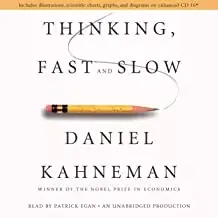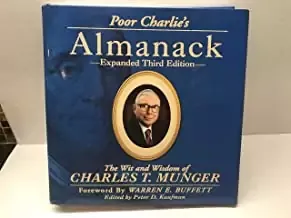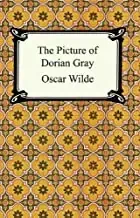Relatively speaking, the former is more important. All successful people have a common characteristic: continuous self-learning.
If you don't want to be a mediocre person, you must first change your thinking, break the inertia of inertia, continue to learn, and then continue to output.
1. Thinking, Fast and Slow
Thinking, Fast and Slow by Daniel Kahneman
Our brains are making decisions all the time, but do you know how brain decisions work? Do you know that many decisions are actually not "thoughts" and are just subconscious mechanical processes?
In this case, it is not difficult to explain that most decisions are invalid and regrettable. The author of this book, Daniel Kahneman, won the Nobel Prize in Economics. This is a book that reshapes thinking. What is more important than finding the flaws in your thinking? How to think and how to make decisions, this book gives you the answers.
The "New York Times" Bestseller, acclaimed by authors such as Freakonomics co-author Steven D. Levitt, Black Swan author Nassim Nicholas Taleb, and Nudge co-author Richard Thaler, "Thinking Fast and Slow" offers a whole new look at the way our minds work, and how we make decisions.
Why is there more chance we'll believe something if it's in a bold typeface? Why are judges more likely to deny parole before lunch? Why do we assume a good-looking person will be more competent?
The answer lies in the two ways we make choices: fast, intuitive thinking, and slow, rational thinking. This book reveals how our minds are tripped up by error and prejudice (even when we think we are being logical) and gives you practical techniques for slower, smarter thinking. It will enable to you make better decisions at work, at home, and in everything you do.
2. Capital in the Twenty-First Century
Capital in the Twenty-First Century by Thomas Piketty
Inequality in human society has always existed. The wealth distribution gap is gradually increasing. It may be bigger than we thought. If you don't work hard, you will only get poorer. If you don't try your best to catch up with wealth, then poverty will catch up with you. Don't be fooled by the fantasy in front of you, be brave, and look at these cruel truths, I promise, it will be one of the most important motivations in your life.
What are the grand dynamics that drive the accumulation and distribution of capital? Questions about the long-term evolution of inequality, the concentration of wealth, and the prospects for economic growth lie at the heart of the political economy. However satisfactory answers have been hard to find for a lack of adequate data and clear guiding theories.
In Capital in the Twenty-First Century, Thomas Piketty analyzes a unique collection of data from twenty countries, ranging as far back as the eighteenth century, to uncover key economic and social patterns. His findings will transform debate and set the agenda for the next generation of thought about wealth and inequality.
Piketty shows that modern economic growth and the diffusion of knowledge have allowed us to avoid inequalities on the apocalyptic scale predicted by Karl Marx. But we have not modified the deep structures of capital and inequality as much as we thought in the optimistic decades following World War II.
The main driver of inequality—the tendency of returns on capital to exceed the rate of economic growth—today threatens to generate extreme inequalities that stir discontent and undermine democratic values. But economic trends are not acts of God. Political action has curbed dangerous inequalities in the past, Piketty says, and may do so again.
A work of extraordinary ambition, originality, and rigor, Capital in the Twenty-First Century reorients our understanding of economic history and confronts us with sobering lessons for today.
3. The Practice of Management
The Practice of Management by Peter F. Drucker
How the discipline of management was born started from this book. This book discusses management from a holistic and systematic perspective for the first time.
To this day, this book still exudes strong vitality, especially for office workers. It can be said to be a must-have in the workplace and is frequently read. Reading this book can avoid many pitfalls. The capital NB in your head will become bigger and bigger.
Is this book from 50 years ago? I can't believe it.
At the same time, I read several management books that have just been published, but they all seem to be the explanation or development of this book.
I read today, "There are only two functions of an enterprise: to create customers and to innovate."
The process of creating customers is the process of satisfying customer needs. When customer needs are not met, customers do not exist, and the market does not exist. Customers and markets are created only when businesses meet customer needs.
About innovation, there is a saying that roughly means this: In a static economy, there are no enterprises, only brokers who buy and sell in the middle, and enterprises only exist in a dynamically expanding economy. (I will pretend to be high-level, and then add that enterprises are born in response to economic tensions, and at the same time provide kinetic energy for tensions. Haha!)
4. The Effective Executive
The Effective Executive by Peter F. Drucker
Only to have the manager manage to learn it, of course not. Everyone needs to learn some management knowledge, and everyone is a participant in management. In terms of stepping back ten thousand steps, one's own life must be managed. Time is fair to everyone, and there is no big difference in IQ. Why do others run Mercedes-Benz and BMW, and you prefer to share scan codes with your girlfriend?
Maybe it’s because you are not efficient enough, not doing the most important things at the right time, not doing the most things in the least time, day after day, in place year after year, it’s time to make a change and take action, Have an efficient life.
"The Effective Executive," tells us: Can a group of ordinary people do extraordinary things? It's totally doable. As long as everyone in our organization can be productive. Can it be learned to be effective? Being effective can be learned. Does everyone have to be productive? Being productive is something managers must do in all knowledge organizations.
Every knowledge worker is actually a manager—even if he has no so-called authority. As long as he can make outstanding contributions to the organization. The effectiveness of managers is often the most critical factor in determining the effectiveness of an organization's work; not only senior managers are managers, but all those responsible for actions and decisions that contribute to the effectiveness of the organization's work should also work as managers and think.
How it be effective? Record and analyze the use of time, focus on contributions, give full play to the strengths of people, prioritize priorities, and make effective decisions.
What makes an effective executive? The measure of the executive, Peter F. Drucker reminds us, is the ability to "get the right things done." This usually involves doing what other people have overlooked as well as avoiding what is unproductive. Intelligence, imagination, and knowledge may all be wasted in an executive job without the acquired habits of mind that mold them into results.
Drucker identifies five practices essential to business effectiveness that can, and must, be learned: Managing time Choosing what to contribute to the organization Knowing where and how to mobilize strength for the best effect Setting the right priorities Knitting all of them together with effective decision-making Ranging widely through the annals of business and government, Peter F.Drucker demonstrates the distinctive skill of the executive and offers fresh insights into old and seemingly obvious business situations.
5. Rich Dad Poor Dad
Rich Dad Poor Dad by Robert T. Kiyosaki
What do the poor lack? Is it a rich dad? What is lacking is not money, but the ability of money to make money. Remember: Capital never sleeps. Because capital can make money for you while you sleep, you must have an "after-sleep income". The reason why the rich are getting richer is that they can constantly find ways to make money faster.
I read this book for the first time when I was 10 years old. I remember brainwashing me at that time like a hurricane blowing in my head, and it was blown down. At that time, my parents were also educated like their parents in the book: good grades in exams and good schools. But this book tells you that these are all clouds! If you want to achieve financial freedom instead of working to support yourself, that's all pointless! What a shock, it's almost a push to reshape the values...
At that time, my investment in the stock market had already made a small gain, and I was thinking about what to do next. After reading this book, I was overjoyed. There is quite a feeling of finding a guiding light. Later, self-study business management, elective accounting, finance, etc., were more or less influenced by this book.
I remember sharing many of the ideas in the book with my parents at that time. They all felt that there was some truth to them, but they were deeply trapped in the system and could not change, or their thinking was fixed and they were unwilling to change. After reading this book after 11 years, I can't find the shock of that year again. In fact, there are very few books now that have moved me as much as this one did. Can you think that your thinking has begun to solidify? This is actually the sadness of adults...
The conclusion is that you should read this book early, and it is basically useless if you are late. The text of this book is easy to understand, and the title of the book makes people wonder if it is actually for children. As an enlightenment book for children who do not have financial business concepts, there may be no more suitable book than this book.
6. Poor Charlie's Almanack
Poor Charlie's Almanack: The Wit and Wisdom of Charles by Peter D. Kaufman
The partner of Warren Buffett, this book allows you to plant value investment concepts and deeply understand what value investing is and how to make value investments. Although the concept is good, don't use it indiscriminately. Investment is a system. This book has a foundation.
Charlie Munger is undoubtedly a legendary figure, he said that he has never taken any economics, psychology, etc. courses, but he talks about these aspects in a good way, which reminds me of life in People who have achieved outstanding achievements in any aspect may not have received very professional education, but their common characteristic is very obvious, that is, they have the correct way of thinking that ordinary people can easily understand but not easily imitate.
What is the correct way of thinking? After reading the whole book and adding my own insights, I think there are no more than three points. The first point is a positive attitude. When life is unsatisfactory, people’s emotions often fluctuate. Sometimes they can face problems and solve problems with optimism and positivity.
Behavior or use lies to paralyze yourself to paralyze others. Why are great people great? Their greatness is not that they can solve problems perfectly every time, but that every time they fail, they can always stand up again to meet the next challenge.
Munger also said in the book, Let The "recipe" for your own pain is to lose your mind when you are frustrated. When faced with difficult problems, people often feel self-pity and complain. They only focus on the problem itself or hold responsibility, and unknowingly shift the conflict.
As a result, the root of the problem and the solution to the problem will not be paid attention to in the long run. In the past, doing anything could only be a failure at most not a failure. With a healthy mind, you can maintain correct thinking.
7. Positive Discipline
Positive Discipline by Jane Nelsen Ed.D.
The child passed by the store and fell in love with his favorite toy, crying desperately to buy it, but there is a similar one at home, what would you do at this time? What should I do if the child does not eat on time, does not eat at lunch, and cries to eat at 3:30 in the afternoon?
Children’s childhood education is very important and is related to the child’s life. The problem is: that none of us are experts. In the game with children, parents seem to be kidnapped. This book has cultivated five outstanding children, all of whom graduated from prestigious schools such as Harvard. Educating children, by reading this book is enough. Or, let yourself be educated again.
For twenty-five years, Positive Discipline has been the gold standard reference for grown-ups working with children. Now Jane Nelsen, distinguished psychologist, educator, and mother of seven, has written a revised and expanded edition.
The key to positive discipline is not punishment, she tells us, but mutual respect. Nelsen coaches parents and teachers to be both firm and kind so that any child–from a three-year-old toddler to a rebellious teenager–can learn creative cooperation and self-discipline with no loss of dignity.
Inside you'll discover how to:
- bridge communication gaps
- defuse power struggles
- avoid the dangers of praise
- enforce your message of love
- build on strengths, not weaknesses
- hold children accountable with their self-respect intact
- teach children not what to think but how to think
- win cooperation at home and at school
- Meet the special challenge of teen misbehavior
“It is not easy to improve a classic book, but Jane Nelson has done so in this revised edition. Packed with updated examples that are clear and specific, Positive Discipline shows parents exactly how to focus on solutions while being kind and firm. If you want to enrich your relationship with your children, this is the book for you.”
–Sal Severe, author of How to Behave So Your Children Will, Too!
Millions of children have already benefited from the counsel in this wise and warmhearted book, which features dozens of true stories of positive discipline in action. Give your child the tools he or she needs for a well-adjusted life with this proven treasure trove of practical advice.
8. The Great Gatsby
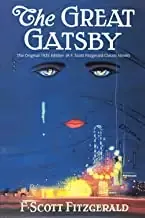
The Great Gatsby by F. Scott Fitzgerald
Who is Gatsby? Gatsby is a cousin of the German Emperor, Gatsby is a German spy, Gatsby is a murderer, and Gatsby is the Trimarcho of the West Peninsula - the purveyor of endless balls. But we know that Gatsby is not Jay Gatsby, Gatsby is James Gates, the son of a western farmer.
Just as some say Gilda ruined Fitzgerald, some say Daisy ruined Gatsby. But what was Gatsby like? He is someone who, from a young age, planned his life to achieve his purpose. I have always thought that people who plan their lives strictly are paranoid, but only the paranoid can succeed.
Gatsby's success is inevitable, his character determines that he must be successful. He can't be like Tom who has nothing but consumption, he can't be as stupid as Wilson, and he's not as content with his life as Nick. He could only succeed when he renamed himself, Gatsby, at the age of seventeen. Either succeed or die.
Either a bootlegger or something, Gatsby will succeed, I'm convinced.
Just as Dan Cody brought a possibility to Gatsby's life, Daisy's appearance is the embodiment of success: falling in love with the golden girl and living happily ever after.
Either Daisy or Tracy or whatever must be shining like silver, always charming, always at the center of the eye. Only such a golden girl can match Gatsby's mansion feast, and only such a golden girl who needs money in her voice can meet Gatsby's dream.
It's a pity that Gatsby's perfectionism can't persist with Daisy. "I did love him--but I also loved you." Daisy's love is like a coin in a fine handbag, throw some, throw some more at that person, and it's all true, but you know, none of it's true.
But what's the use of seeing them through? Gatsby's road to success is no longer perfect, and it wouldn't be perfect without Daisy's one-off. Paranoid people will not find a young golden girl again, wrap her well in the velvet of money, and give her a little love. In that case, there is no way to undo the failure here in Daisy. Failure is a brand that cannot disappear from the heart.
Nothing is crueler than life giving you a perfectionist character and enough intelligence.
As long as you need others, others are destined to let you down.
9. Frankenstein

Frankenstein by Mary Shelley
In the preface, it is said that the main purpose of this novel is to reveal the cruel reality of exploiting the exploited classes by the exploiting classes and the brave resistance of the exploited classes.
After Frankenstein saw the monster he created harming human beings, he always regretted and blamed himself before deciding to seek revenge from him. Is there any exploiter who blames himself like this? Heck, why bother?
In my opinion, there are two themes:
the first one is the common aspect of human nature, that people all want love and companionship, even the monsters he created also long for love and a better life.
The second one may be about the relationship between science and humanities. Frankenstein, like a madman of science, was previously blindly indulged in the madness of scientific power, but never thought about the negative effects that science can bring, including after the birth of a monster.
various problems. When these problems appeared, he had no choice but to suffer from inner pain and contradiction, which implied to a certain extent that human beings were vulnerable to the power of science, even if the product of this science was a human being. As a writer rather than a professional sci-fi writer (although Frankenstein is called the first sci-fi novel, which I disagree with),
Mary Shelley's subject matter is important compared to later sci-fi writers for sci-fi's sake. The final ending was not perfect, Frankenstein died with the monster, and Fu's family died too. I think subconsciously this ending was used as a punishment for misusing science. There must be no perfect ending.
10. The Picture of Dorian Gray
The Picture of Dorian Gray by Oscar Wilde
"The Picture of Dorian Gray", this famous book is not thick, but it is perfect, it is fascinating to read, especially the famous words spoken by the talented Wilde through Henry's mouth are dizzying. The content of the book is very deep, and the book can be explored from many angles.
I heard that this book has also been included in the "Top 100 Best Gay Novels" by readers. Just looking at the love of the handsome young Gray by the painters Howard and Henry, it is not unreasonable to classify it.
I don't dare to talk about the small words and righteousness of this thin book but only talk about the translation of this version in a very shallow way.
11. The Grapes of Wrath

The Grapes of Wrath by John Steinbeck
After reading Steinbeck's The Grapes of Wrath yesterday, a sad mood surrounded me.
The ancestors cultivated the land and got the land; when there was a famine, they borrowed from the bank; if they didn’t pay the money, the land became co-owned with the bank; if they didn’t pay, the land became the bank’s property, and they became the bank’s tenant farmers; the bank used tractors, they have no home since then; hundreds of thousands of people rushed to the advertised western paradise - California, but it turned out to be just a lie, the farmers deliberately recruited large numbers of people, desperately trying to keep wages down, they wandered, looking for work like mad dogs, They are starving, they are teetering on the edge of death...
Harvests are rotting in the ground, oranges that hundreds of thousands of dying people want to eat are poured with oil and burned, and potatoes are thrown into the river, wanting to eat? No, can I grab it? There are police. Since they can't sell for a price, giving them away can only make the price lower.
A confession in the book: We people just want to live a good life, we just want to raise our children well. When I was old, I wanted to sit at the door and watch the setting sun. When I was young, I wanted to dance, sing, and lie together. We want to eat and drink, we want to have jobs, and that is our hope. We want to tire our bones...
Steinbeck ends the story in heavy rain and flooding. The protagonist's family has no money, no food, what will happen to them, the author does not Say, maybe their fate is the same as that of hundreds of thousands of homeless people - starvation, death...
everything, natural or man-made? After the book was published, it caused panic among the rulers, and some even wrote a book "The Grapes of Happiness", but it was nowhere to be found among the old papers.
12. Wuthering Heights
Wuthering Heights by Emily Brontë
When referring to Emily Bronte's "Wuthering Heights", Woolf said that the impulse that prompted Emily Bronte to create was not her own pain and injury.
After reading "Wuthering Heights", I can't believe it. She said so. The kind of heart-wrenching passion in the novel is almost impossible to achieve by one's imagination without personal experience.
In the past, I thought that the best atmosphere for reading "Wuthering Heights" was a stormy night with strong wind and lightning; now I suddenly feel that, in the wild and uninhibited surface of the story, to taste the deepest tranquility and sadness like water, it is still necessary to fall in the snow.
Silent winter night reading. Wuthering Heights is actually a story of growth and betrayal. Growth itself means betrayal of the beautiful childhood and compromise of the ugly adult world.
13. To The Lighthouse

To The Lighthouse by Virginia Woolf
This is a novel carefully designed by Woolf. The lighthouse is a symbol of the lady's whole spirit. The structure of the whole novel "long-short-long" "just coincides with the rhythm of the light of the lighthouse shining on the vast sea in the dark night", implying that the lady's inner spirit has overcome the swallowing of death and time.
Like a beacon, it faithfully sets the direction for the future voyage of the surrounding characters. If we borrow Hegel's method again, "long-short-long" is the structure, and "positive-negative-combination" is the inner meaning. The first part depicts the lady's spiritual will from the front; the second part makes death, the most unfeeling opponent, exert a negative impact on the lady's will; in the third step, the lady's spirit is like the rising sun from the future of the characters around you. It is a variation of the first part, and it is based on the sublimation of the former.
Reading "To the Lighthouse", I was amazed at how a middle-class British housewife in her fifties can still protect her charm and the order of her family. I often think of my mother in between readings.
14. 1984

1984 by George Orwell
A friend once asked, what was the biggest feeling of watching 1984? Many people say they are afraid, but I only feel the sadness that is so deep that I can't pour out tears.
In the hut at dusk, he and she woke up from their slumber, the light of the setting sun outside the window was projected on her, and there was the singing of a washerwoman and all kinds of cars and people in the world. Such a moment, such a love, it is real and irresistible. They all knew that such a time would not last long, but the emotions of the resurrected people, he thought, could not be changed by anyone.
In the small park on that winter day, she said to him: I betrayed you. He said I betrayed you too. She said: There is really something that scares you to the bottom of your heart, and makes you want to ask another person to suffer instead of you, And, when you think about it, you meant it. He nodded. When she got up and left, and her figure drowned in the crowd in the blink of an eye, what else in the world could not be changed?
What is a betrayal? He explained everything about her from the very beginning, and so did she. But after being tortured, he was able to face his interrogator, saying: I still didn't betray her. -Because he still loves her. He is not afraid of separation, not afraid of not being able to protect each other, not afraid that she will hate him, the only thing he is afraid of is that he no longer loves her.
He didn't believe there was any power that could make him stop loving her until it actually came.
But, it's not really about love. The most important meaning of love to him is that no matter how they change him, he can always have this last bit of persistence - if you use a more vulgar word, a belief. Even after he no longer believes in himself, morality, and humanity, he can still believe in his own feelings. When the last wisp of thatch on the top of his head was also removed, he was finally completely naked in front of the world, allowing them to transform, no longer a human being, just a cold screw on that huge machine.
I don't know if most people, like me, have had two moments of faith in their lives. When I was very young, I used to believe in the beautiful life and glorious future described in the textbook for us, until that night, my sister and brother-in-law opened the book and told me some lively and bloody things that were covered up in singing and dancing. fact. The whitewashed walls in front of me were peeling and shattering little by little, and no longer able to shield me from the wind and rain.
After a long, long time, I again, gradually began to believe something, but it was always accompanied by fear, for fear that such a belief would expose me to the same vulnerable position. The original belief was stuffed into my mind by others when I wasn't able to resist.
Although I was confused when I lost it, I had reason to forgive myself. And now, when I can open my eyes and reach out to resist, I still build up this belief little by little. If one day, even if it collapses with a bang, will my breathing and existence have any meaning?
15. Lord of the Flies
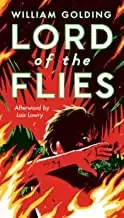
Lord of the Flies by William Golding
This book, which is written with so many problems in direct symbolism, is a veritable masterpiece. The evil of human nature, the conflict between democracy and dictatorship, and the surprising reasons for the failure of democracy are all manifested.
I felt over and over while reading this book that I would definitely be on Jack's side when your people are so ignorant, stupid, inefficient, and can't count on anything, you can't communicate with them to make them understand, or I can't stand it at all The reason is the inefficiency at such a critical moment.
The author made Jack and his gang into savages only because of his own dissatisfaction with the dictatorship. Although this way of writing makes people's evil side more real and naked, it makes their own thoughts. Values are fading. Democracy needs high-quality people. Without this premise, democracy will never be able to defeat dictatorship.
"Lord of the Flies" describes a future nuclear war in which a plane flies a group of children from home to evacuate south. The plane was shot down, and the children's cabin landed on a deserted, uninhabited coral island. At first, the children worked together, but later, out of fear of the so-called "beasts" splitting into two factions, it ended with the instinct-loving autocracy overpowering the rational democrats.
Conclusion of Best Classic Books that College Students Should Read
Human, in just a few decades, every book you have read will be integrated into your blood. In the subsequent life, you will breathe and share your fate, which deeply affects everything about you. Reading good books, and tasting good wine, may everyone be treated tenderly over the years.
You May Also Like: Classic Books for College Students
- The Kite Runner, by Khaled Hosseini
- Treasure Island, by Robert Louis Stevenson
- Emma, by Jane Austen
- Alice’s Adventures in Wonderland, by Lewis Carroll
- Great Expectations, by Charles Dickens
- Brideshead Revisited, by Evelyn Waugh
- The Lord of the Rings, by J. R. R. Tolkien
- The Wind in the Willows, by Kenneth Grahame
- To Kill a Mockingbird, by Harper Lee
- Little Women, by Louisa May Alcott
- The Catcher in the Rye, by J. D. Salinger
- His Dark Materials, by Philip Pullman


